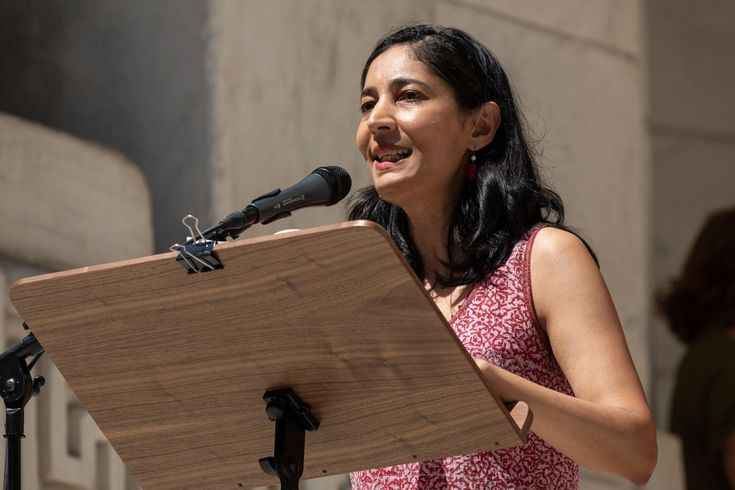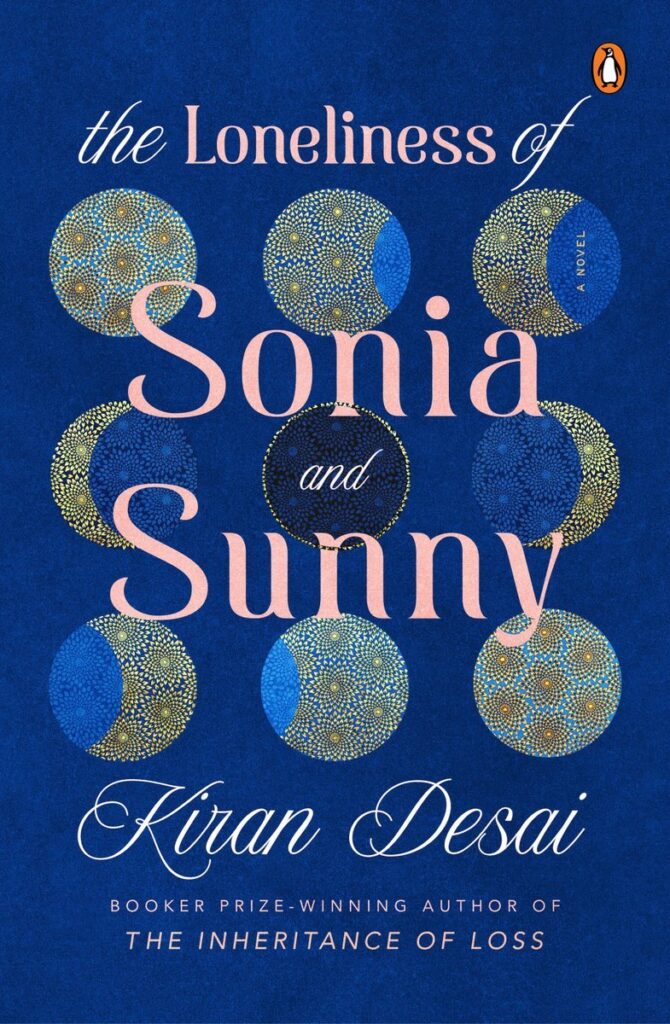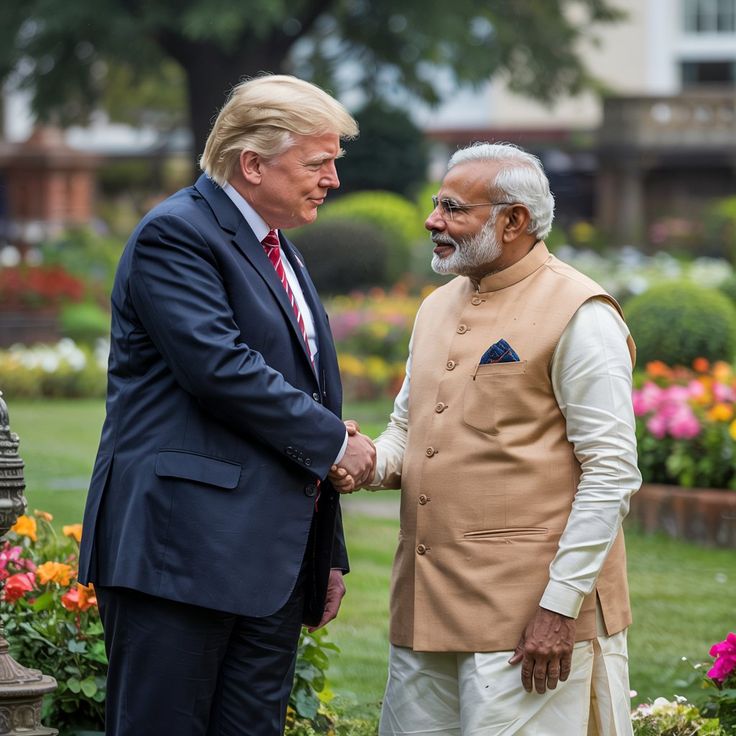When Kiran Desai won the Booker in 2006, critics hailed her as a voice for the displaced. Now, almost twenty years later, she is back with another story of longing, belonging, and exile.
New Delhi / London: The literary world is abuzz once again with the name Kiran Desai. Nearly two decades after she won the Booker Prize in 2006 for The Inheritance of Loss, Desai has returned to the coveted shortlist with her latest novel, The Loneliness of Sonia and Sunny. The announcement has rekindled global interest in one of India’s most celebrated voices in contemporary fiction and marked a moment of pride for South Asian literature on the world stage.
A Return to the Booker Spotlight
When the Booker Prize judges revealed their 2025 shortlist earlier this week, Kiran Desai’s name stood out for both readers and critics. The 53-year-old author, born in New Delhi and raised partly in India and the United States, has not published a major novel since her Booker-winning The Inheritance of Loss. Her reappearance with a work described by judges as a “vast and immersive narrative” feels nothing short of a literary homecoming.
The judges praised The Loneliness of Sonia and Sunny as “a deeply human story that resonates with the displacement and longing experienced by millions of immigrants across the globe.” They highlighted Desai’s ability to interweave the intimate struggles of her characters with broader social realities, a hallmark that made her earlier works widely celebrated.
For many in the literary community, Desai’s shortlist placement feels like both a continuation of her legacy and a bold step into new terrain.
The Story of The Loneliness of Sonia and Sunny
The novel explores the intertwined lives of two young Indian immigrants in America, Sonia and Sunny, who grapple with identity, belonging, and the unspoken loneliness that often follows migration. Sonia, an ambitious but vulnerable woman, navigates the pressure of family expectations while carving out her independent life. Sunny, on the other hand, embodies a quieter turmoil—torn between cultural duty and personal freedom.
Together, their stories create a tapestry of longing, resilience, and emotional exile. Desai examines not just the physical displacement of migration, but also the subtle emotional isolation that shadows individuals who are caught between two worlds.
Readers who have previewed the novel describe it as moving, lyrical, and emotionally raw. The narrative shifts seamlessly between the characters’ perspectives, offering glimpses of both personal struggles and the broader social environment in which they exist.
Much like her earlier works, Desai uses humor, irony, and finely observed details to highlight the contradictions of modern life. Yet this novel also signals a maturity—a willingness to dwell longer on silence, gaps, and the ache of absenc
A Booker Journey That Comes Full Circle
Kiran Desai’s relationship with the Booker Prize is already legendary. In 2006, at just 35 years old, she became one of the youngest winners in the award’s history with The Inheritance of Loss. That book, which explored themes of colonial legacy, migration, and fractured identities, cemented her place in global literature.
Winning the Booker transformed Desai’s life, thrusting her into international recognition. Her victory also carried symbolic weight—she was the daughter of acclaimed author Anita Desai, herself a three-time Booker finalist. Critics often referred to their achievements as a rare mother-daughter literary dynasty.
But after the monumental success of The Inheritance of Loss, Desai stepped away from the public eye. For years, readers wondered when her next novel would appear. Interviews occasionally hinted at her ongoing work, but little was confirmed until the quiet announcement of The Loneliness of Sonia and Sunny.
That the novel not only emerged but immediately secured a spot on the Booker shortlist makes the moment even more remarkable. For Desai, it is both a return and a reaffirmation of her literary prowess.
The Booker Prize: Why It Matters
The Booker Prize, established in 1969, is one of the most prestigious awards in the English-speaking world. Each year, it recognizes the best original novel written in English and published in the UK or Ireland. Over the decades, it has catapulted authors such as Salman Rushdie, Margaret Atwood, Arundhati Roy, and Hilary Mantel into global prominence.
To be shortlisted is in itself a career-defining achievement, as it places an author’s work in front of international audiences and cements its place in literary history. For Desai, whose earlier success already made her a household name in literary circles, this shortlist represents not just recognition but also a reintroduction to a new generation of readers
Global Reactions and Reader Excitement
The announcement of Desai’s shortlisting sparked a wave of excitement across social media platforms, literary festivals, and academic circles. Many readers expressed joy at seeing her name resurface after such a long gap.
“Kiran Desai is back—and in the most spectacular way possible!” one reader posted on Twitter (X). “We waited almost 20 years for her next novel, and now it’s up for the Booker. Worth every minute.”
Indian media outlets hailed the news as a proud moment for South Asian literature. Universities where her works are studied reported a surge of interest in seminars discussing her narrative style and thematic focus. Meanwhile, international critics noted how Desai’s return adds weight and excitement to this year’s Booker race, which also features a diverse group of writers from around the world.
Themes That Resonate in 2025
Part of the excitement surrounding The Loneliness of Sonia and Sunny lies in its thematic relevance to contemporary issues. In an age defined by global migration, shifting identities, and widespread discussions about belonging, Desai’s novel speaks directly to the anxieties of our time.
Her exploration of loneliness resonates particularly strongly in the post-pandemic era, when questions of isolation, connection, and community have taken on renewed urgency. By framing these universal questions through the specific experiences of Sonia and Sunny, Desai achieves a universality that critics believe could carry her all the way to a second Booker victory.
Literary Style and Critical Praise
Critics who have reviewed early copies of the novel highlight Desai’s prose as elegant, layered, and deeply empathetic. She is known for her ability to capture both the minute details of everyday life and the sweeping forces of history and politics.
Her new novel, while intimate in focus, reportedly does not shy away from larger questions of class, race, and power. Yet reviewers stress that the book never feels heavy-handed. Instead, it flows with quiet lyricism, allowing readers to slip into the characters’ worlds almost effortlessly.
One British critic wrote, “Desai has once again proven that she is a writer of rare gifts. The Loneliness of Sonia and Sunny is not just a story—it is an experience.”
The Pressure of Expectation
With the Booker shortlist comes not just praise but also pressure. Readers and critics alike are already speculating whether Desai could become a rare two-time Booker winner. Only a handful of writers in history, such as Hilary Mantel and J.M. Coetzee, have achieved this feat.
While Desai herself has remained characteristically reserved in interviews, she has spoken about the long process of writing her new novel. “It took years of living, observing, and listening before I felt ready to tell Sonia and Sunny’s story,” she said at a recent literary event. “Writing is as much about patience as it is about passion.”
Her humility in the face of immense expectation has endeared her even further to her readers.
A Broader Impact on Indian Literature
Desai’s shortlisting also carries broader implications for Indian and diasporic literature. In recent years, authors from South Asia have continued to leave their mark on international awards, but Desai’s recognition underscores the longevity and influence of Indian voices in English-language fiction.
It also highlights the intergenerational impact of storytelling. With Anita Desai’s legacy still celebrated in Indian literary circles, Kiran Desai’s reemergence creates a bridge between past and present. For aspiring writers, her success is a reminder that literature thrives not just on speed but on persistence and depth.
Looking Ahead
The Booker Prize ceremony is set to take place later this year in London, where the winner will be announced at a globally televised event. Regardless of the outcome, Desai’s place on the shortlist already ensures that The Loneliness of Sonia and Sunny will reach a wide and diverse audience.
Publishers report that pre-orders have surged since the shortlist announcement, with translations already underway in several languages. Bookstores across India, the UK, and the US are preparing for heightened demand.
A Moment of Celebration
Kiran Desai’s shortlisting for the Booker Prize is more than just a literary milestone. It is a celebration of resilience, artistry, and the enduring power of storytelling. Nearly two decades after her last triumph, Desai has proven that her voice remains as vital and compelling as ever.
With The Loneliness of Sonia and Sunny, she has given readers a narrative that speaks to both personal solitude and collective experience. Whether she takes home the Booker again or not, her return has already enriched the global literary landscape.
For now, readers and critics alike wait eagerly—not just for the prize announcement, but for the chance to immerse themselves fully in the world Desai has created. And in doing so, they join Sonia and Sunny on their journey through loneliness, love, and the search for belonging.
Related News: Read More





